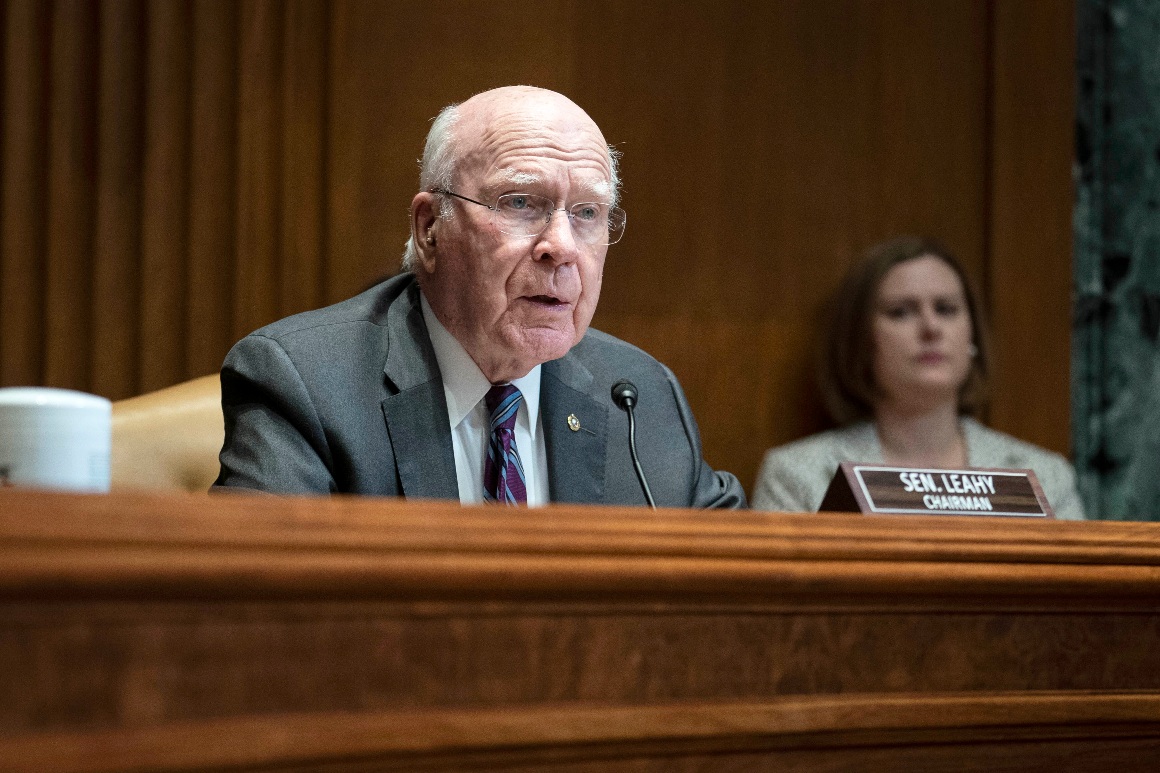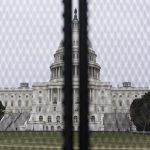Senate spending leaders clinched an agreement on Tuesday that would provide more than $2 billion to fill the waning budgets of the Capitol Police and National Guard after months of strain following the Jan. 6 insurrection.
Sens. Patrick Leahy (D-Vt.) and Richard Shelby (R-Ala.) finalized the deal as a counter proposal to the $1.9 billion emergency spending bill that stalled in the Senate after House passage in May. Senate Majority Leader Chuck Schumer said Tuesday that he wants to pass the supplemental spending bill “this week," but the support of at least 10 Republican senators is not yet locked in — a necessity to pass the upper chamber.
"We’ve still got to pass it through the Senate," said Leahy, who chairs the Senate Appropriations Committee, on Tuesday afternoon.
The package totals just over $2 billion, including more than $1 billion for the Department of Defense and $100 million for the Capitol Police, according to details released by both lawmakers. Nearly $71 million of the $100 million for the Capitol Police would bolster salaries and general expenses for the force, including more than $31 million to backfill overtime for officers, a summary of the bill notes.
“It took a lot of work. Sen. Shelby was very forthcoming," Leahy said. "I appreciate that we have a long, long relationship and friendship."
In a statement, Shelby said, “I am pleased this legislation sticks to immediate security needs, as I have long advocated. It is essential that we provide the National Guard and Capitol Police the funding they require without further delay.“
Under the $1 billion for the Pentagon, $521 million would go to the National Guard, with another $500 million in assistance to aid Afghan nationals who have facilitated U.S. war efforts. To help process special immigrant visas for those individuals, the State Department would receive $600 million. The Department of Health and Human Services would get $25 million to resettle those refugees.
The Architect of the Capitol would receive $300 million to upgrade windows and doors throughout the building, as well as install new security cameras. The AOC, Senate Sergeant at Arms and Capitol Police would also receive money to cover coronavirus-related costs, including personal protective equipment and cleaning.
Leahy has warned that if lawmakers don’t act swiftly to clear the emergency cash Capitol Police salaries will be depleted next month and the National Guard will have to cut training, though the law enforcement unit and the Pentagon might be able to shift funding to cover their shortfalls.
Shelby has previously said he’d like to move the security supplemental by unanimous consent or another expedited process, which wouldn’t require leadership to carve out precious floor time to debate the bill.
Lawmakers have sparred for months over funding to plug security gaps the Jan. 6 insurrection exposed. Republicans panned the majority party’s offers as too expensive, while Democrats insisted any security bill also include assistance for the Afghan nationals.
Any deal the Senate might pass could face turbulence in the House, where progressives nearly tanked passage of the lower chamber’s version of the security bill. The three House Democrats who voted against that measure this spring criticized the proposal for not providing enough funding for counseling and treatment for staff and for throwing more funding at a policing system that is not sufficiently checked.
"I know $2.1 billion is better than zero. Politics is the art of the possible," said Rep. Don Beyer (D-Va.), whose district borders D.C. and has been strongly pushing for more Capitol police funding.
"I thought our bill was very good, but I’m in the House. And even then it only passed by one vote, he added."
House Majority Leader Steny Hoyer said Tuesday the lower chamber could take up the bill later this week, if the Senate can move quickly.
Hoyer said he spoke with Leahy earlier Tuesday and urged quick action so the House could vote before leaving for its lengthy August recess. But he also didn’t rule out extending the House session or bringing the chamber back in session during August.
"If they pass it tomorrow, we’ll pass it here," Hoyer said.
Jennifer Scholtes, Nicholas Wu and Heather Caygle contributed to this report.





















